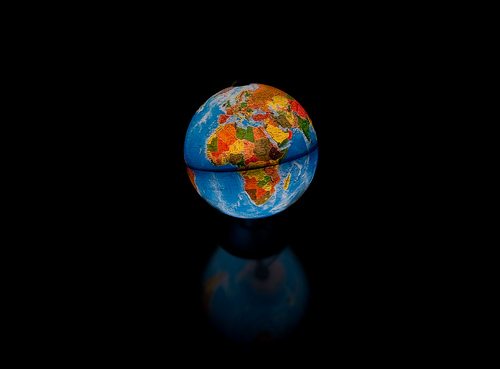

Environment
Global Sustainability Institute to map effects of global resource shortages
Anglia Ruskin University is to undertake an ambitious new project that plans to map the world’s resources.
It is hoped that the Global Resource Observatory (GRO), launched by the university’s Global Sustainability Institute (GSI), will encourage thinking about the consequences of resource scarcity.
Dr Aled Jones, Director of GSI, says, “Human society operates with a fairly simple model of capital flows based on providing the goods and services that people use. The current economic system behaves as if it is a linear system with no concept of limitations to resources.
“The current evidence suggests that resource constraints will, at best, steadily increase energy and commodity prices over the next century and, at worse, create a very uncertain and unstable economic model.”
The project aims to investigate the effects of resource constraints on the short-term GDP growth of countries.
It will provide an international database presenting national demand, supply and flow figures relevant to global resource security. It will also feature a global ‘debt map’, showing the supply of resources that can be found within each country compared to its current consumption.
The Anglia Ruskin team will work with collaborators including Lloyds of London, the Aldersgate Group, the Institute and Faculty of Actuaries, and academics from Italy, Iceland, Sweden and the USA.
On August 20 the Earth’s resource budget for the year was exceeded, according to the Global Footprint Network.
Earth Overshoot Day, as it is called, is the approximate annual marker of when humanity begins living beyond its means, and it is arriving earlier every year. In 1993, it fell on October 21. In 2003, it was September 22.
The Global Footprint Network says that our need for ecological resources is currently equivalent to that of more than one and a half Earths.
Commenting on the Earth Overshoot Day, WWF director of renewable energy and footprint outreach Keya Chatterjee said, “Overshoot Day is a reminder that we are devouring our planet’s future by living far beyond our means.
“The most important environmental issues of our time – like climate change, disappearing forests, and the loss of species – are driven by the fact that we can’t keep our demand for natural resources in line with the Earth’s supply.
“We can no longer afford to binge on our planet’s finite resources.”
Further reading:
What gets measured gets managed: sustainability in 21st century business
UK pumps £13.5bn into oil and gas to combat rapidly declining production
Earth Overshoot Day: ‘We can no longer binge on our planet’s finite resources’
Earth Day 2013: for our planet and our future
The inevitability of easing pressure on humanity’s ecological credit card


 Environment12 months ago
Environment12 months agoAre Polymer Banknotes: an Eco-Friendly Trend or a Groundswell?

 Features11 months ago
Features11 months agoEco-Friendly Cryptocurrencies: Sustainable Investment Choices

 Features12 months ago
Features12 months agoEco-Friendly Crypto Traders Must Find the Right Exchange

 Energy11 months ago
Energy11 months agoThe Growing Role of Solar Panels in Ireland’s Energy Future




























